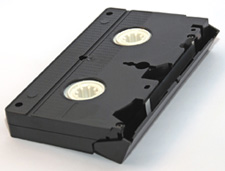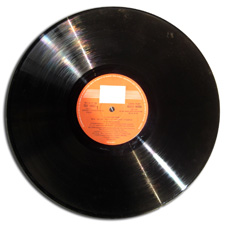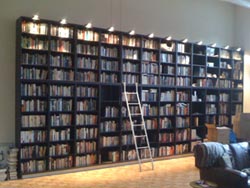Old Media Versus the Environment
by Egatz
 Recently, a saner mind than mine convinced me to clear out a rented storage space full of many things I’ll never use. As a writer, I went through a period of amassing articles, newspapers and magazines containing things which might eventually find their way into a short story, novel, poem, or article I would write one day. Pretty soon, my place was looking like the Collyer brothers brownstone. Women fled, screaming. Potential girlfriends were lost. Okay, maybe it wasn’t that bad, but I lived, worked, and ran a few businesses out of a one-bedroom rent-stabilized apartment for longer than I care to remember. The brilliant poet Dean Parkin dubbed it “the mancave.”
Recently, a saner mind than mine convinced me to clear out a rented storage space full of many things I’ll never use. As a writer, I went through a period of amassing articles, newspapers and magazines containing things which might eventually find their way into a short story, novel, poem, or article I would write one day. Pretty soon, my place was looking like the Collyer brothers brownstone. Women fled, screaming. Potential girlfriends were lost. Okay, maybe it wasn’t that bad, but I lived, worked, and ran a few businesses out of a one-bedroom rent-stabilized apartment for longer than I care to remember. The brilliant poet Dean Parkin dubbed it “the mancave.”
Among the things I discovered in the back of the storage unit were ten crates filled with VHS tapes. I had already thrown out several garbage bags full of videotapes when I recently moved. Now, like a fruitcake which keeps coming back to you every Christmas, I’ve got videotapes of films I’ve long since replaced by DVDs. It makes weaker humans nauseous to throw away thousands of dollars of old media, but it shouldn’t. We do it every time we step into a car, wear down all the parts we rarely think of, and then wonder why we’re lucky to get pennies on the dollar when we get trade it in or try to sell it.
From my window I watched sanitation workers get hernias carting off my old media, I found myself reflecting on the nature of good old American consumerism. How do entire industries effectively get individuals to purchase the same content multiple ways? Simple. Keep changing the format and hype each iteration as “new and improved.”
 My father has been a music lover his entire life. During his long attraction to recorded music, he’s bought the same music on 78 rpm discs, 45 rpm singles, 33 1/3 rpm “long playing” albums, reel-to-reel tape, cassettes, compact discs, and repackaged box sets. He was smart enough to pass on the 8-track format, the Mini Disc, and has yet to purchase anything on the iTunes Music Store. Recently, he let more than 3000 albums go to some fast-talking swindler for a song, and there’s not much mirth in that fact to say whether the pun was intended or not.
My father has been a music lover his entire life. During his long attraction to recorded music, he’s bought the same music on 78 rpm discs, 45 rpm singles, 33 1/3 rpm “long playing” albums, reel-to-reel tape, cassettes, compact discs, and repackaged box sets. He was smart enough to pass on the 8-track format, the Mini Disc, and has yet to purchase anything on the iTunes Music Store. Recently, he let more than 3000 albums go to some fast-talking swindler for a song, and there’s not much mirth in that fact to say whether the pun was intended or not.
My father isn’t alone. The recording industry is essentially able to print money by selling consumers the same tunes decade after decade. Digital technology means they have to hire new engineers to clean up old master tapes, but the ever-smaller digital formats mean they don’t have to pay designers, photographers, and artists for new work. Box sets are the lone exception, of course, but even then, what you essentially get is all the old material you own on one or more formats, plus a few B-sides or rare live tracks. As the major labels continue to implode, most consumers are not shedding tears.
The computer industry has worked similarly for decades. Software programmers and hardware manufacturers have colluded since the dawn of the personal home computer to leapfrog each other with larger software applications which require more powerful hardware to run them. Faster hardware with larger memory enable software designers to keep adding new features, bloating simple applications almost beyond recognition. When consumers realized all they needed was a minimal system to run a Web browser, basic email, and, perhaps, word processing, Apple came to the rescue and created technologies to move your record collection, your boxes of family photos, and yes, even your movies to your Mac. Turn up the need for more clock cycles, boys!
Which brings us to books. As if the Great and Powerful Jeff Bezos himself has been reading The Egatz Epitaph, his team at Amazon.com can’t seem to lower the price of the Kindle fast enough in order to more accurately reflect its capabilities in the blazing headlights of the Apple iPad. With the Kindle heading for below the psychological barrier price point of $100, does this mean the end of the book as we know it? Probably not any time soon. Unlike recorded music, written materials, including books, have been around for a relatively healthy portion of human civilization. Books in homes and offices have acted as testament to the intelligence and accomplishment of owners around the world. People have coveted books to such a degree book wallpaper has been available for over a hundred years. It’s hard to convey that kind of fine breeding with a plastic Kindle weighing a few ounces no matter how quickly technology marches on.
Things are changing. Every once in a while you read about someone shaking things up, like creating a feature film which debuts as a digital download, or an old author skipping a print edition in favor of an e-book release. This type of thing will only become more common. Still, some readers (and writers) point out serious flaws with both the current e-book publishing model and the hardware it’s delivered on.
 I happen to own a lot of books. I can’t imagine living without them. I couldn’t afford to replace them all in e-book editions. Most of them aren’t available in e-pub format, either. Many of them are out of print. These shortcomings will hopefully be ironed out in the coming years, but I’m not interested in repurchasing a library I’ve been building since I was a child. I’ve done that a few times with the music and films I love, and I’m not about to do it all over again with books.
I happen to own a lot of books. I can’t imagine living without them. I couldn’t afford to replace them all in e-book editions. Most of them aren’t available in e-pub format, either. Many of them are out of print. These shortcomings will hopefully be ironed out in the coming years, but I’m not interested in repurchasing a library I’ve been building since I was a child. I’ve done that a few times with the music and films I love, and I’m not about to do it all over again with books.
No stranger to the bleeding edge of technology, I’m not about to shun ebook readers, either. As an author, publisher, and reader, I’m not blind to the fact this is the way most of us will eventually be reading books. Dead tree editions will be a niche product for the wealthy, similar to the way Amazon wants to sell me a $500 edition of Exile on Main Street. The health of the planet dictates this. Forests are not being replanted fast enough, and you only get to destroy a primeval rainforest once. I just feel bad about what readers of the future are going to do when the big EMP goes off. They’ll probably sit around campfires roasting small mammals impaled on pieces of twisted rebar while they tell stories. Thus may begin the rebirth of the rhyming narrative poem.
With dead tree editions of books, there’s a lot less to worry about. Fire, followed by flood, are just about the only thing worth being concerned about. Loaning them to so-called friends is the other problem, but we’ll save that for another post. There’s something tactile and lifestyle-like about being able to walk over to my bookcase and pull out something to confirm a fact, as opposed to typing a phrase into Google. I put a little Django Reinhardt on the Victrola, sit in the sun, and sip something while turning page after page of dead trees. It’s distraction-free. It’s a nice thing. Come on over and try it some time. You can even bring your ebook reader. I might even make a latte for you, which you can enjoy as you dig through piles of VHS tapes to see what you want to bring home. I’m trying to keep some of this stuff out of the landfill. It seems the right thing to do.
Comments
[…] Follow this link: Old Media Versus the Environment | The Egatz Epitaph […]
[…] I emptied out an old storage unit I had been renting for far too long. I found myself throwing out hundreds of high-end fashion catalogs I had designed in another life. […]